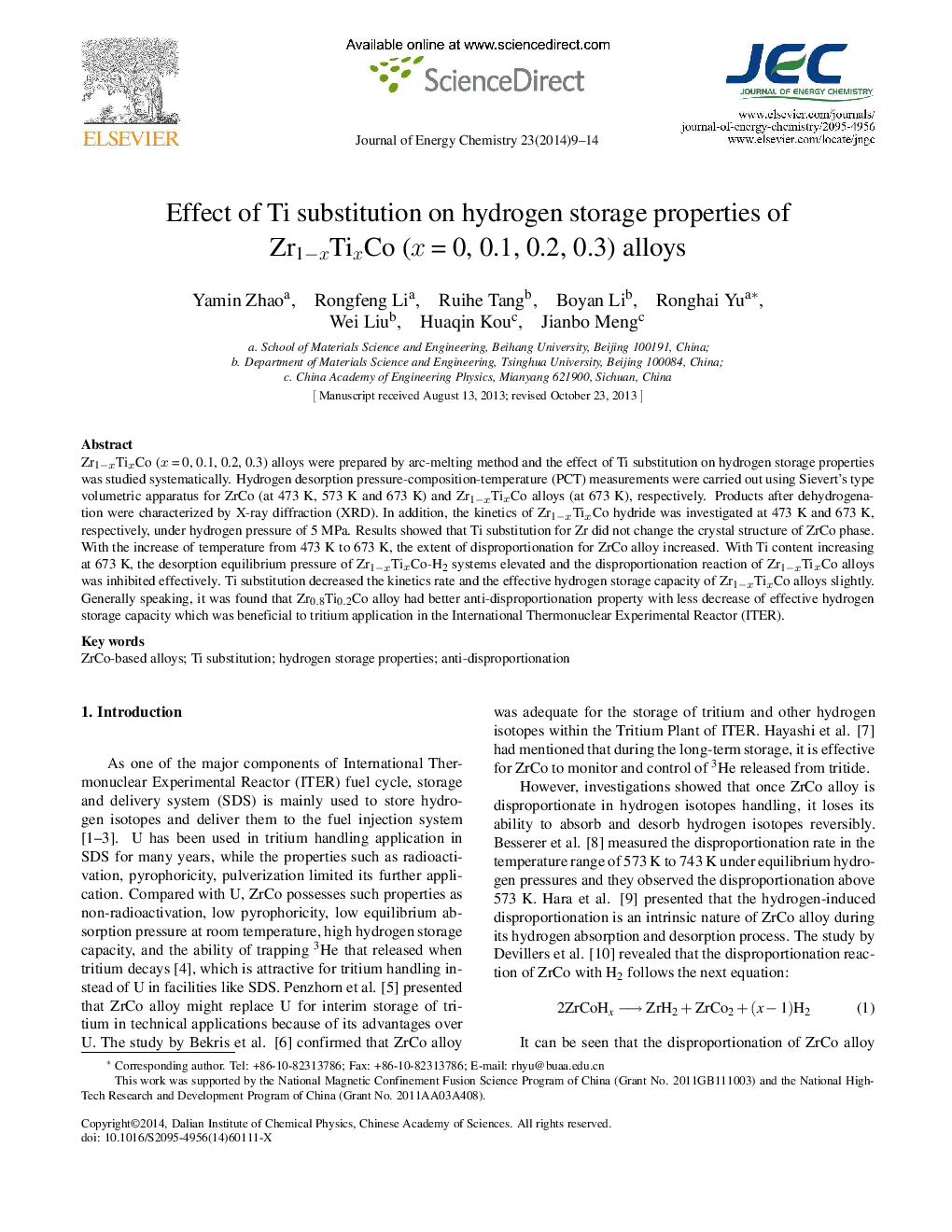| Article ID | Journal | Published Year | Pages | File Type |
|---|---|---|---|---|
| 64032 | Journal of Energy Chemistry | 2014 | 6 Pages |
Zr1−xTixCo (x = 0, 0.1, 0.2, 0.3) alloys were prepared by arc-melting method and the effect of Ti substitution on hydrogen storage properties was studied systematically. Hydrogen desorption pressure-composition-temperature (PCT) measurements were carried out using Sievert's type volumetric apparatus for ZrCo (at 473 K, 573 K and 673 K) and Zr1−xTixCo alloys (at 673 K), respectively. Products after dehydrogenation were characterized by X-ray diffraction (XRD). In addition, the kinetics of Zr1−xTixCo hydride was investigated at 473 K and 673 K, respectively, under hydrogen pressure of 5 MPa. Results showed that Ti substitution for Zr did not change the crystal structure of ZrCo phase. With the increase of temperature from 473 K to 673 K, the extent of disproportionation for ZrCo alloy increased. With Ti content increasing at 673 K, the desorption equilibrium pressure of Zr1−xTixCo-H2 systems elevated and the disproportionation reaction of Zr1−xTixCo alloys was inhibited effectively. Ti substitution decreased the kinetics rate and the effective hydrogen storage capacity of Zr1−xTixCo alloys slightly. Generally speaking, it was found that Zr0.8Ti0.2Co alloy had better anti-disproportionation property with less decrease of effective hydrogen storage capacity which was beneficial to tritium application in the International Thermonuclear Experimental Reactor (ITER).
Graphical AbstractThe effect of Ti content on the hydrogen storage properties including the ability of anti-disproportionation of Zr1−xTixCo (x=0, 0.1, 0.2, 0.3) alloys was studied systematically. PCT curves for Zr1−xTixCo-H2 systems were shown in the figure.Figure optionsDownload full-size imageDownload as PowerPoint slide
